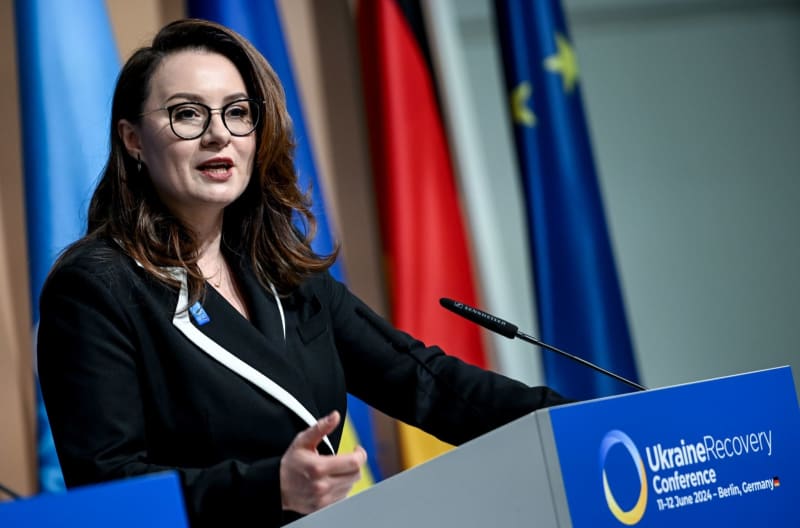Ukraine is currently engaged in extensive efforts to clear its territories of landmines and explosive remnants of war (ERW), according to Deputy Prime Minister Yulia Svyrydenko. Speaking at an international conference on mine clearance in Lausanne, Switzerland, where Ukrainian Prime Minister Denys Shmyhal was also present, Svyrydenko emphasized the critical need for international support in these endeavors. The war between Ukraine and Russia has resulted in large areas of contamination, with hundreds of thousands of mines, unexploded ordnance, and cluster munitions littering combat zones. The urgency of this issue is compounded by the need to ensure safety for civilians and the return of displaced populations to their homes.
The conference has attracted representatives from around 50 countries, alongside experts from various mine clearance organizations, scientists, and companies specializing in demining equipment. This gathering represents a collective effort to address the pressing challenges posed by landmines and ERW. The need for coordinated action and information sharing was a major theme during the discussions, highlighting that effective demining operations cannot be achieved by Ukraine alone, but rather require collaborative international support.
Germany’s contribution to the demining efforts was highlighted by Peter Reuss from the German Foreign Office, who revealed that Berlin disburses about €20 million (approximately $21.7 million) annually for this purpose. He expressed optimism that the conference could yield valuable insights into accelerating the clearing processes of mines and explosives. As the ramifications of these remnants continue to threaten lives and hinder recovery efforts, the financial support from nations like Germany plays a significant role in enhancing Ukraine’s demining capabilities.
A significant focus of the discussions centered on technological advancements, particularly the role of artificial intelligence (AI). Reuss pointed out that AI applications could revolutionize the detection of mines, potentially leading to quicker, more effective, and cost-efficient demining operations. By leveraging such technology, the demining process could be significantly enhanced, minimizing the risks to human operators and expediting the recovery of contaminated areas. As the international community explores innovative solutions, the application of AI in these contexts presents a new frontier in humanitarian assistance and disaster response.
Moreover, the conference reflects a growing recognition of the long-term impact of landmines and ERW on post-conflict recovery and development. Areas that remain contaminated cannot safely support agricultural activities, housing, or infrastructure development, which are crucial for the resumption of normal life for the affected populations. As a result, the implications of effective mine clearance extend beyond immediate safety concerns; they are intrinsically linked to economic stability and social cohesion in post-war environments.
Ultimately, the efforts showcased at the conference underscore the importance of global solidarity in addressing the humanitarian crisis spurred by landmines and explosives. Ukraine’s call for support resonates as a reminder that international collaboration is vital not only to assist in the immediate response to the ongoing crisis but also to lay the foundation for a peaceful and sustainable future. The commitment of various nations, organizations, and technological innovations will be crucial in ensuring that affected areas are rendered safe and conducive for rehabilitation, growth, and safe habitation in the years to come.

